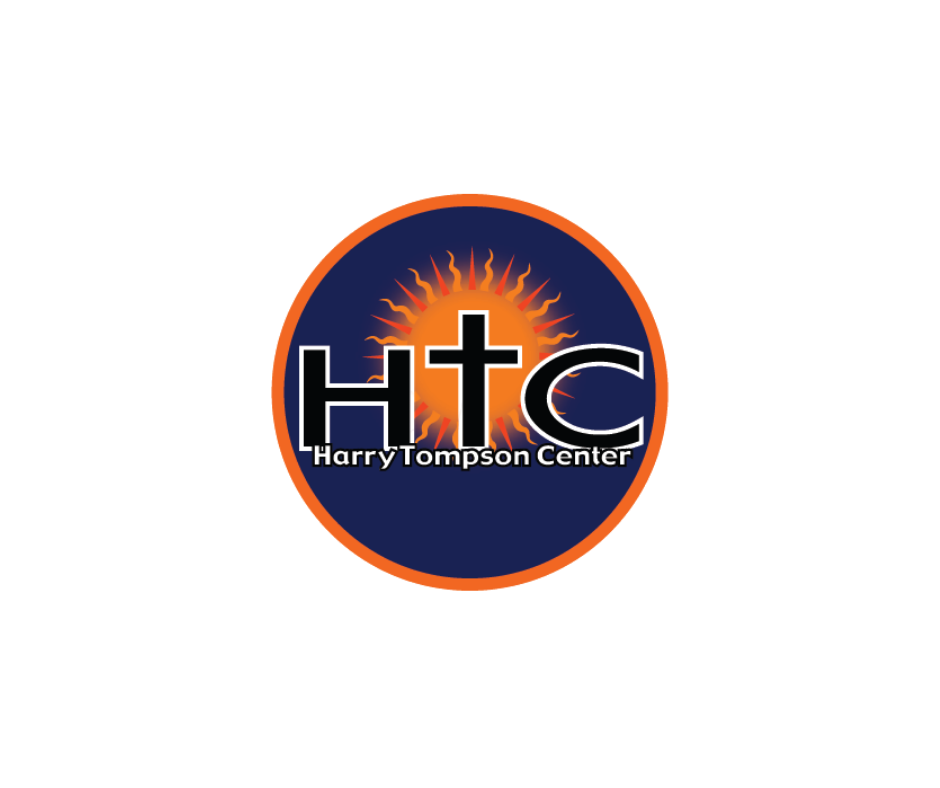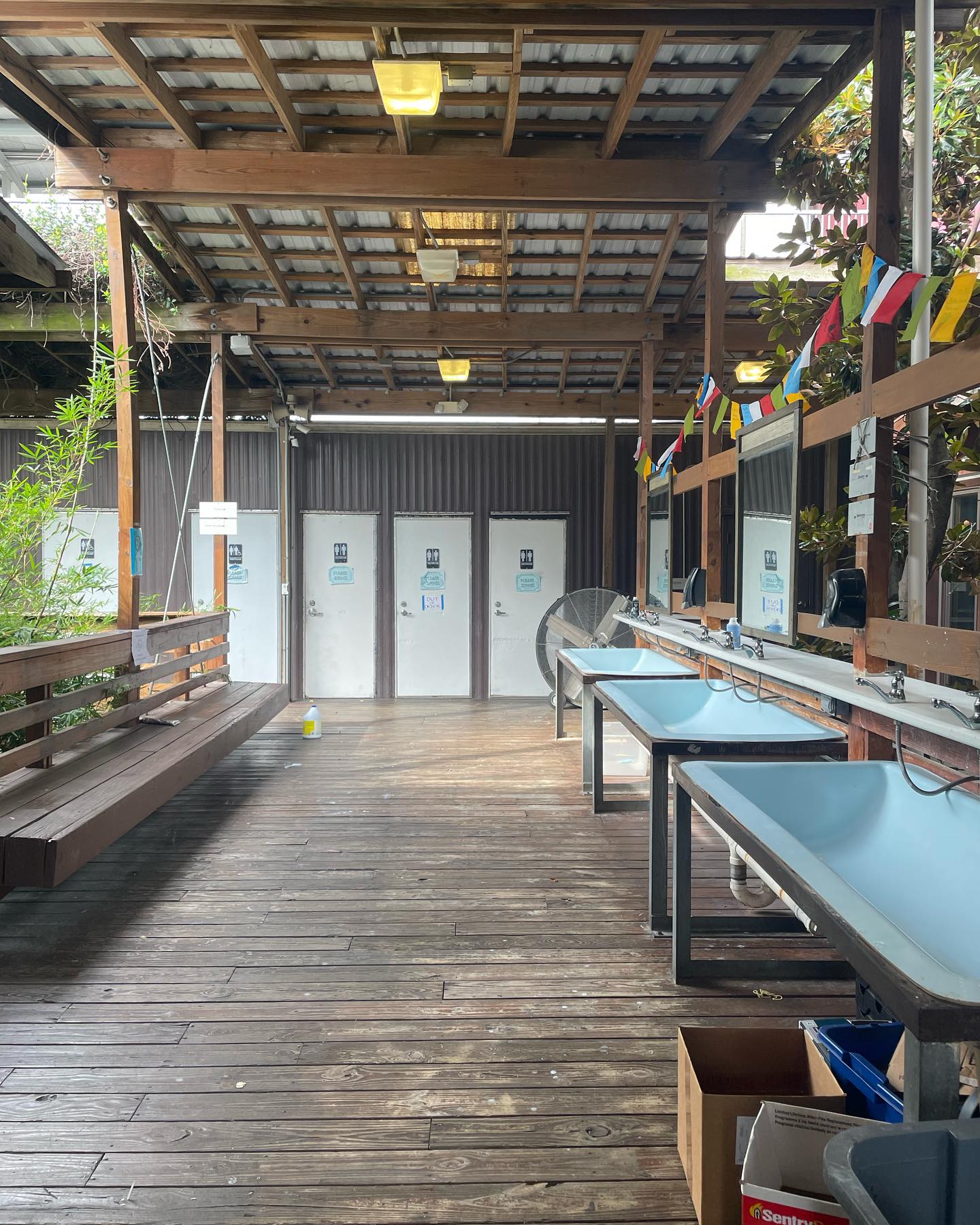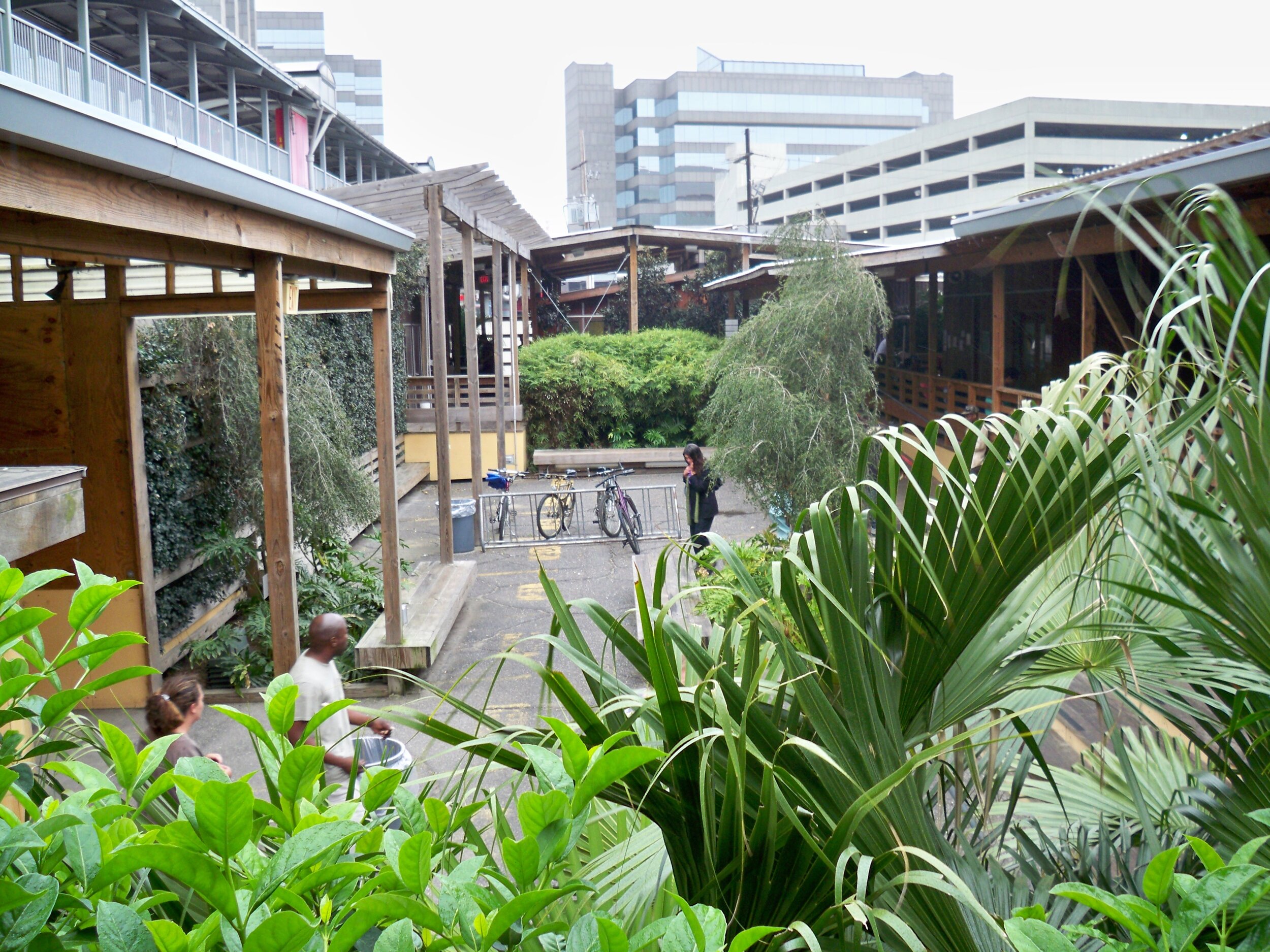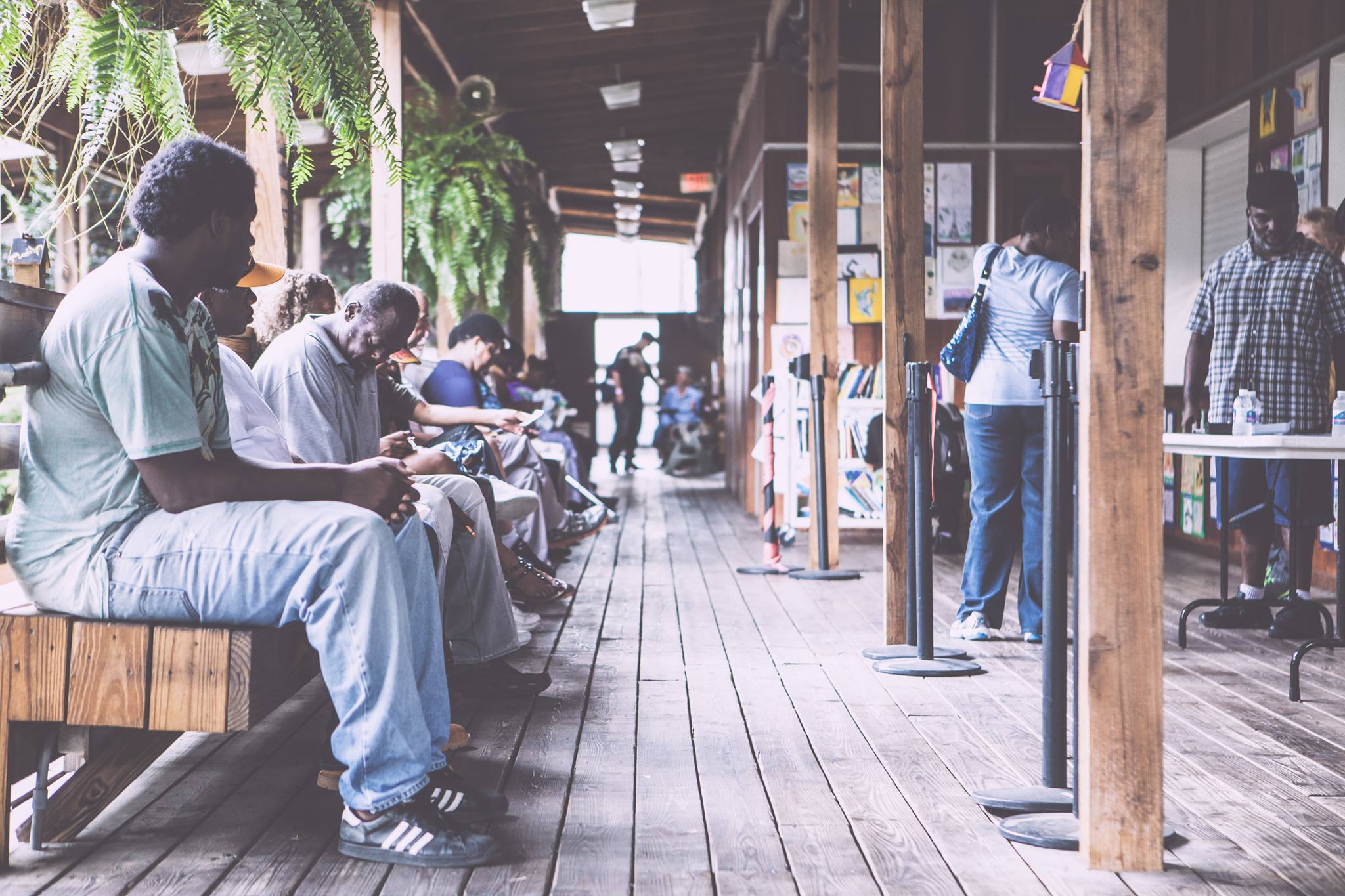
The official logo of the Harry Tompson Center (Photo by: Harry Tompson Center)
As described on their website, “The Harry Tompson Center is a low-barrier day shelter specializing in delivering hygiene, hospitality, health, and housing navigation services to the unhoused community of New Orleans.” Indeed, I have had the pleasure of working with the Harry Tompson Center for about three years, as part of Hearts For the Homeless—a student-run club at Tulane University that offers blood pressure screenings and education for unhoused individuals across New Orleans. Through spending such a significant amount of time at the HTC, I am well aware of the valuable and effective work they do in assisting the unhoused population of New Orleans. With this interview, I hope to shed light on the relevant background and state of homelessness in New Orleans. I also seek to highlight the tremendous value of this nonprofit and inspire others to donate or volunteer their time to this organization. The following interview is from a conversation I shared with Eva Sohl, the Assistant Director of the Harry Tompson Center (HTC). To offer some scale for the operations of the HTC, there has been an increase of 200% in total visits to the HTC since last year. From January to July 2023, the HTC received 18,950 total visits consisting of 3,450 unique individuals.
Paul Stolin: Hi Eva, I wanted to start out by getting some insight into the general trends of homelessness in New Orleans. Can you talk about some of the significant gaps in the city’s support structure that might lead individuals to experience homelessness in the New Orleans area?
Eva Sohl: Well, the most basic thing about why homelessness exists, or especially as it exists now, is a lack of affordable housing. After Katrina, there has not been a lot of affordable housing development that has happened. One piece that you can look into is how they demolished the housing projects, which had conditions that many people were unhappy with, but they chose to demolish those and they went with a mixed-income model for rebuilding those sites. They were built on the same footprint, but it was done through private-public partnerships with their investors. At the end of the day, when that project was completed, only 38% of the low-income housing units that we originally had through the projects were replaced. That just shows how dramatic the loss of housing stock was after Hurricane Katrina.
Eva Sohl (continued): After Katrina, there were lots of people who owned houses that weren’t able to rebuild. The majority of people in the city were renters before the storm, and many people struggled to get recovery money unless they lived in an owner-occupied unit where you lived on one side and then rented out the other. If it was a just a house that had both units function as rentals, very few people received help to replace anything that wasn’t owner-occupied. So that caused us to lose more of the housing stock.
Eva Sohl (continued): The rental market has also changed drastically in the last ten years; people are just getting priced out. Right now, we see people newly becoming unhoused all the time because the person they have been renting from sold the house, and a new person bought it and is going to renovate it—so they evicted them. That is kind of a classic story.
Paul Stolin: Interesting, thank you for all of that information. Given that you work in the nonprofit sector, if we want to see a future in which homelessness is dramatically reduced in New Orleans or even nationally, can that major change be reliably delivered by nonprofits or NGOs? Or does major, sustainable change have to come through city or state governmental interventions?
Eva Sohl: Obviously, making a dramatic investment into affordable housing and making that a priority is something that has to happen through government partnerships on all levels. That’s city government, that’s state government, that’s federal government. Those folks all need to work together to make the development of affordable housing viable.
Another major challenge we face when addressing homelessness, is access to mental health resources. It is likely that many of the people experiencing homelessness have mental health conditions, and sometimes this can contribute to becoming unhoused. Also, when you live on the street, any person’s mental health status can be destabilized due to the high level of trauma and stress. Often these conditions go unaddressed or unsupported due to lack of resources.
Eva Sohl (continued): In 2013, Louisiana’s budget for mental health services was slashed dramatically, and it sent shock waves across the state. I wasn’t even working in this field at the time, but I was working with social workers who really knew the impact that this was going to have on the community. There were inpatient hospitals that closed down, including a hospital for youth, as a result of this budget cut. It was like their whole field stopped being supported, due to this public funding situation.
Paul Stolin: Got it, well thank you for your responses. If you could, I would love if you could delve into the nuances of what services the Harry Tompson Center provides to unhoused individuals and what role your organization plays in the wider net homelessness outreach.
Eva Sohl: We do a lot of things but our entry point service that serves the most amount of people on a given day is showers. You just come in and sign up and people get access. We provide toothbrushes, toothpaste, razors soap, and shampoo. Everyone gets towels and washcloths to use. We pride ourselves on having a facility that has individual shower stalls where guests get to close that door behind them and experience 20 minutes of private time. Many other centers have more of a communal locker room setup. Our shower service helps to fill that basic need. We provide people the tools and space they need to care for themselves.

Shower and sink area of the Harry Tompson Center (Photo by: Harry Tompson Center)
Eva Sohl (continued): Sometimes people come in, they’re in a bad mood or they’re having a rough day and when you are trying to sort out a crisis with somebody and you ask “All alright, do you want to take a shower first” “Do you want to get a shower today?” And people are like, “yeah, yeah, yeah. Let me get a shower” “Alright, let’s get you in the shower and we’ll talk afterwards.” And so often the experience is that people come out and they’re like, oh my God, I feel like a human being again, It’s really nice, it’s not just about the physical health aspect of getting clean, but also there’s this wellness aspect to it. You just feel better after you’ve had a shower. We have those tools and personal care items for people to access that empowers folks to be like, “Ok what do I want to work on next?”
Eva Sohl (continued): Health is another main focus of the HTC. We have our Tuesday health clinic, which is run by volunteer doctors and nurses who are either currently working in the field or are retired but maintain their license. So this service is here if people want an expert opinion or if they know that they have a health condition that isn’t being addressed, or if people have prescriptions that have gotten lost or stolen, they can get access to a new prescription. And then there’s also help with navigation that helps people manage the next steps of their healthcare. There’s also a lot of help with wound care, because that’s of an ongoing issue that must be continuously cared for. Many people come back often and we help clean and redress their wounds. We try to build our services around relationship-based care and access.

Inside of the Harry Tompson Center (Photo by: Harry Tompson Center)
Paul Stolin: What about Housing?
Eva Sohl: Of course, so we do housing case management, we do the navigation piece. Basically, people walk in and if they are unhoused we let them sit down and talk with folks about what their options are in this domain. A lot of times people already have a case manager who’s helping them with housing, but they just have lost touch with them and they’re not sure which agency they are assigned to because there are so many different groups people have to work with. Part of what we do is help to track down who’s in their support system. We help people get signed up for ACT (Assertive Community Treatment) teams, which gets them access to outreach-based mental health care. We also help with housing applications. Especially, when there’s people coming to the center that are reaching a chronic level of homelessness, we will sit down with folks and work through that housing application to get them hopefully referred for a voucher.
Paul Stolin: What is the best way for somebody to help your organization continue its mission?
Eva Sohl: One very helpful thing is donation drives. There’s a whole range of items that we can always use. So, a very good way for groups or individuals to get involved is to help just donating to our supply of hygiene and personal care items. If people are interested in volunteering, we are looking for folks who are able to help consistently. Unfortunately, we don’t have the capacity for large groups. Our focus is these day-to-day services. The easiest sort of drop-in service to volunteer with is helping with our showers, which is one of my favorite jobs. I think it’s the best way for people to get involved and interact with guests. If you’re willing to help us keep our shower service going, it is a huge asset to us because the hygiene program serves the greatest number of guests each day and that’s usually where our supportive relationships with people start. We are one of the only places where people can come to get a shower.
Paul Stolin: Eva, thank you so much for taking the time to do this interview I really appreciate all of the answers you have given me.
Eva Sohl: Thank you for taking the time and being interested, it means a lot to me when people care.

Harry Tompson Center waiting area (Photo by: Harry Tompson Center)
For more information about the Harry Tompson Center please visit https://www.harrytompsoncenter.org/.
 NOLAbeings
Multimedia artist Claire Bangser created NOLAbeings as a portrait-based story project that marries...
NOLAbeings
Multimedia artist Claire Bangser created NOLAbeings as a portrait-based story project that marries...
 Data corner: Adobe Suite (create a PDF, social media graphic, presentation, edit a photo and video
Data corner is where you go to work with analytics and top tech skills. It takes on everything from PERL and SQL to Canva and Sprout Social.
Data corner: Adobe Suite (create a PDF, social media graphic, presentation, edit a photo and video
Data corner is where you go to work with analytics and top tech skills. It takes on everything from PERL and SQL to Canva and Sprout Social.
